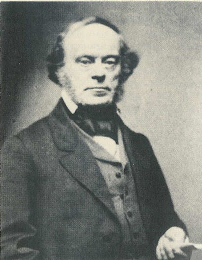A Quote by William Makepeace Thackeray
The world is a looking glass and gives back to every man the reflection of his own face.
Related Quotes
Every man has a weakness," he patiently explained. "I'll find theirs, I promise you." "Every man?" "Yes," he answered emphatically. His hand moved to the back of her neck. Twisting her curls around his fist, he jerked her head back. His face loomed over hers, his breath warm and sweet as he stared down into her eyes. "What is your weakness, Brodick?" she asked. "You.
Men and women make their own beauty or their own ugliness. Sir Edward Bulwer Lytton speaks in one of his novels of a man "who was uglier than he had any business to be;" and, if we could but read it, every human being carries his life in his face, and is good-looking or the reverse as that life has been good or evil. On our features the fine chisels of thought and emotion are eternally at work.
Thus we can get the correct answer for the probability of partial reflection by imagining (falsely) that all reflection comes from only the front and back surfaces. In this intuitively easy analysis, the 'front surface' and 'back surface' arrows are mathematical constructions that give us the right answer, whereas .... a more accurate representation of what is really going on: partial reflection is the scattering of light by electrons inside the glass.
I want you to think back to when you were a kid. Remember the day you learned you could burn ants with a magnifying glass? Oh, what a great day that was! You got to be God. You decided who lived, who died. I must've burned ants for an hour, just laughing. Then I saw one on my arm. Let me tell you something, when you burn yourself with a magnifying glass, you're on your own. You can't even tell your mom, because she gives that face, Oh, he is that stupid.
And looking into the face of ... one dead man we see two dead, the man and the life of the woman who gave him birth; the life she wrought into his life! And looking into his dead face someone asks a woman, what does a woman know about war? What, what, friends in the face of a crime like that, what does man know about war?
A man who gives way to his passions is like a man who is shot by an enemy, catches the arrow in his hands, and then plunges it into his own heart. A man who is resisting his passions is like a man who is shot by an enemy, and although the arrow hits him, it does not seriously wound him because he is wearing a breastplate. But the man who is uprooting his passions is like a man who is shot by an enemy, but who strikes the arrow and shatters it or turns it back into his enemies heart.






































